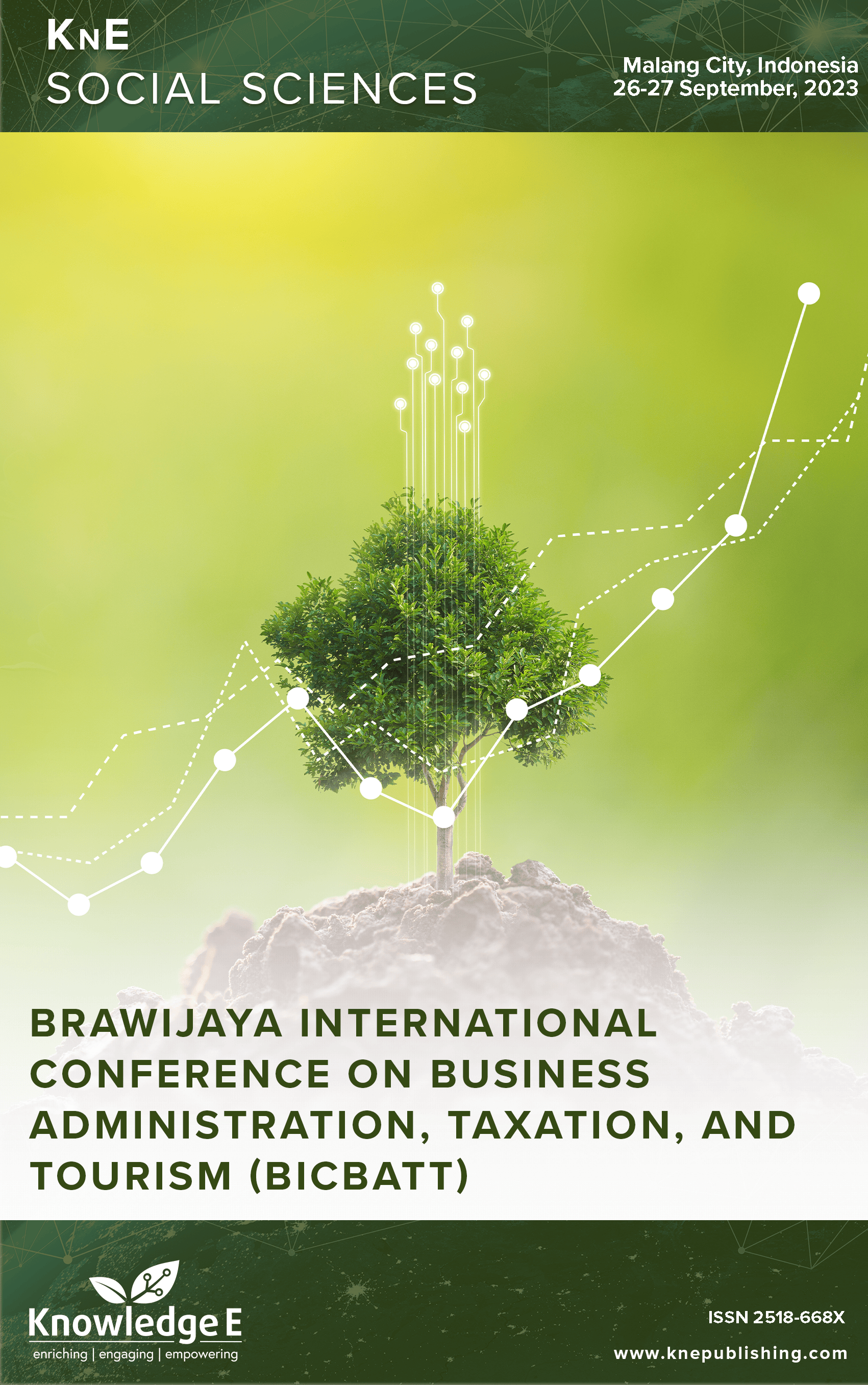The Influence of Entrepreneurial Spirituality and Social Media Adoption on the Sustainability of MSME Performance Mediated by Innovation Capability (Survey on MSMEs in the Tourism Area Sunan Drajat Lamongan)
DOI:
https://doi.org/10.18502/kss.v9i11.15792Abstract
Technological advancements, computerization, and globalization have made businessescompetitiveacrossallindustries. Micro, small, and medium-sizedenterprises (MSMEs) continue to encounter difficulties with resource scarcity and technology adoption, although accounting for over 80% of employment and contributing to 61.97% of the GDP (gross domestic product). The Sunan Drajat Lamongan Religious Tourism Area is a home to hundreds of MSMEs, ranging in size from apparel and souvenir shops to restaurants. The number of visitors rises dramatically throughout the holiday season before becoming quiet, as is common with tourism in general. Entrepreneurship is a key factor in economic growth and serves as the primary driving force for innovative and long-term growth. By leveraging social media to enhance a company’s competitive advantage throughout the entrepreneurship and operation phases, entrepreneurs who possess an entrepreneurial mindset can aid their organizations in efficiently adapting their organizational framework and processes, thereby mitigating environmental conflicts and tensions within the intricate framework of a dynamic business environment. By using social media, MSMEs may reach their target audience with content and information without having to personally meet them. Social media also offers information in the form of customer reviews of goods, services, and even new ideas for sustainable MSMEs. This study aimed to determine how MSMEs’ use of social media and their ability for innovation can impact their success in Sunan Drajat Lamongan’s religious tourism industry. The data were obtained from 132 small and medium-sized enterprises using questionnaires. Path Least Square (PLS) and descriptive analysis were the methods utilized to analyze the data.
Keywords: entrepreneurial spirituality, social media adoption, innovation capability, sustainability of MSMEs performance
References
Miller D, Friesen PH. Archetypes of strategy formulation. Manage Sci. 1978;24(9):921– 33. DOI: https://doi.org/10.1287/mnsc.24.9.921
Ahani A, Rahim NZ, Nilashi M. Forecasting Social CRM Adoption in SMEs: A combined SEM-neural network method. Comput Human Behav. 2017;75:578. DOI: https://doi.org/10.1016/j.chb.2017.05.032
Nurhayati N-Wolff. Social Media in Indonesia – Statistics and Facts [Internet] Tersedia dari: www.statista.com
Parveen F, Jaafar NI, Ainin S. Social Media’s impact on Organizational Performance and Entrepreneurial Orientation in Organizations. Manage Decis. 2016;54(9):2208– 34. DOI: https://doi.org/10.1108/MD-08-2015-0336
Banjarnahor. Teknologi Digital Kewirausahaan dan UMKM. Medan: Yayasan Kita Menulis; 2022.
Covin JG, Slevin DP. Adherence to Plans, Risk Taking, and Environment as Predictors of Firm Growth. J High Technol Manage Res. 1998;9(2):207–37. DOI: https://doi.org/10.1016/S1047-8310(98)90005-0
Toma SG, Marinescu P, Dogaru I. 2017. “Entrepreneurial spirit and innovation,” in Proceedings of the International Management Conference. Faculty of Management, Academy of Economic Studies, Bucharest.
Pawitan G, Nawangpalupi CB, Widyarini M. Understanding the Relationship Between Entrepreneurial Spirit and Global Competitiveness: implications for Indonesia. Int. J. Bus. Soc. 2017;18:261–78.
Bernoff J, Li C. Harnessing the power of the oh-so-social web. MIT Sloan Manag Rev. 2008;49(3):36. DOI 10.18502/17 Page 12 BICBATT 2023
Ainin S, Parveen F, Moghavvemi S, Jaafar NI, Shuib NL. Factors influencing the use of social media by SMEs and its performance outcomes. Ind Manage Data Syst. 2015;115(3):570–88. DOI: https://doi.org/10.1108/IMDS-07-2014-0205
Tajudeen FP, Jaafar NI, Ainin S. Understanding the impact of social media usage among organizations. Inf Manage. 2018;55(3):308–21. DOI: https://doi.org/10.1016/j.im.2017.08.004
Tajvidi R, Karami A. The effect of social media on firm performance. Comput Human Behav. 2017;:105174. DOI: https://doi.org/10.1016/j.chb.2017.09.026
Yang CC. Assessing the moderating effect of innovation capability on the relationship between logistics service capability and firm performance for ocean freight forwarders. Int J Logist. 2012;15(1):53–69. DOI: https://doi.org/10.1080/13675567.2012.669469
Grant RM. Toward a knowledge-based theory of the firm. Strateg Manage J. 1996;17 S2:109–22. DOI: https://doi.org/10.1002/smj.4250171110
Antoncic B, Prodan I. Alliances, corporate technological entrepreneurship and firm performance: testing a model on manufacturing firms. Technovation. 2008;28(5):257–65. DOI: https://doi.org/10.1016/j.technovation.2007.07.005
Calantone RJ, Cavusgil ST, Zhao Y. Learning orientation, firm innovation capability, and firm performance. Ind Mark Manage. 2002;31(6):515–24. DOI: https://doi.org/10.1016/S0019-8501(01)00203-6
Lawson B, Samson D. Developing innovation capability in organization: a dynamic capabilities approach. Int J Innov Manage. 2001;5(03):377–400. DOI: https://doi.org/10.1142/S1363919601000427

